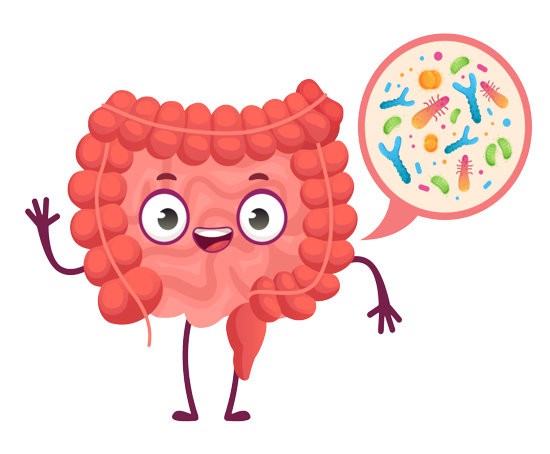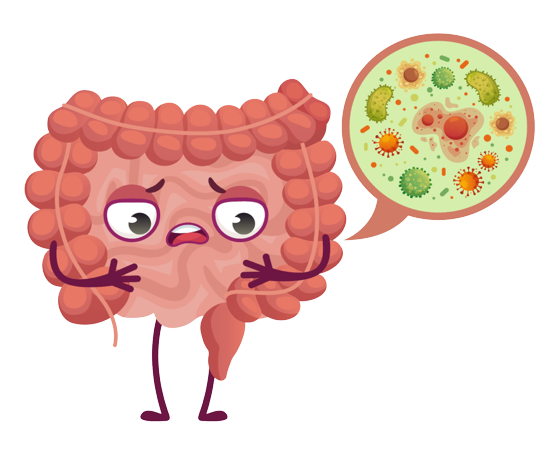That's only part of the story.

The rest of the story is that bacteria can also be beneficial — in fact, bacteria can even help us become healthier.
The trillions of bacteria that live inside our bodies are collectively called the microbiome, which is present at birth and becomes further diversified as we grow. Most of these bacteria live inside the large intestine, which contains up to 1,000 different strains of bacteria.
While some gut bacteria are harmful, most of them play an essential role in our health and survival. Research shows these microorganisms help us digest food, fight infection and maintain a healthy weight.
Some scientists even speculate that gut bacteria may have an effect on how our brain works, as well as the health of our heart. Having the right balance of "good" and "bad" bacteria in your gut is thought to be one of the keys to maintaining good health.

